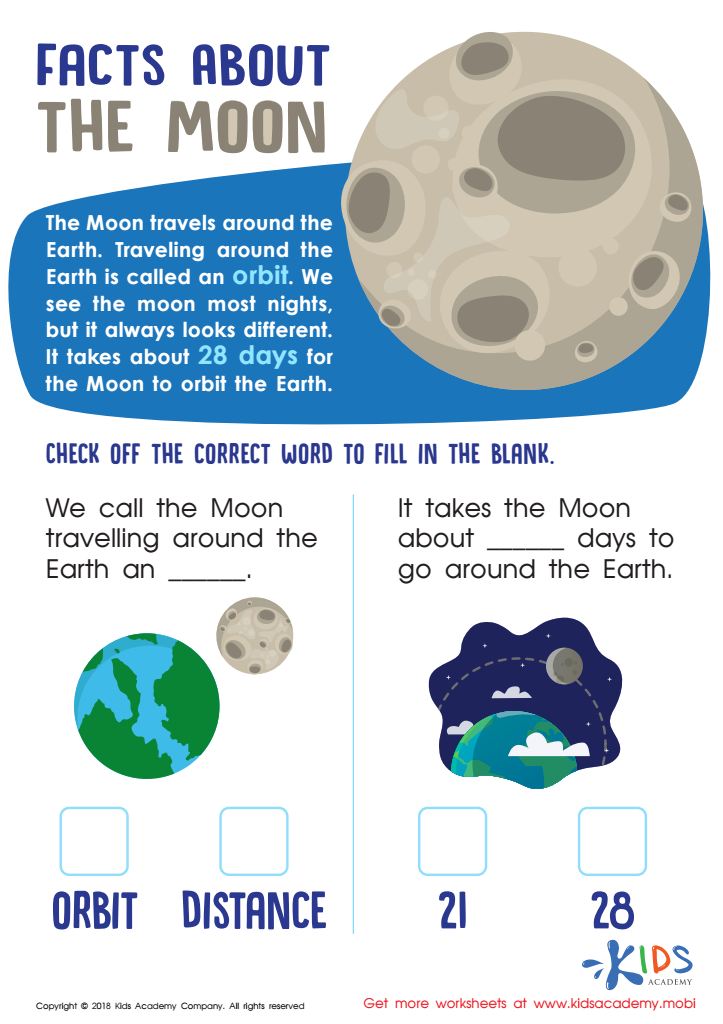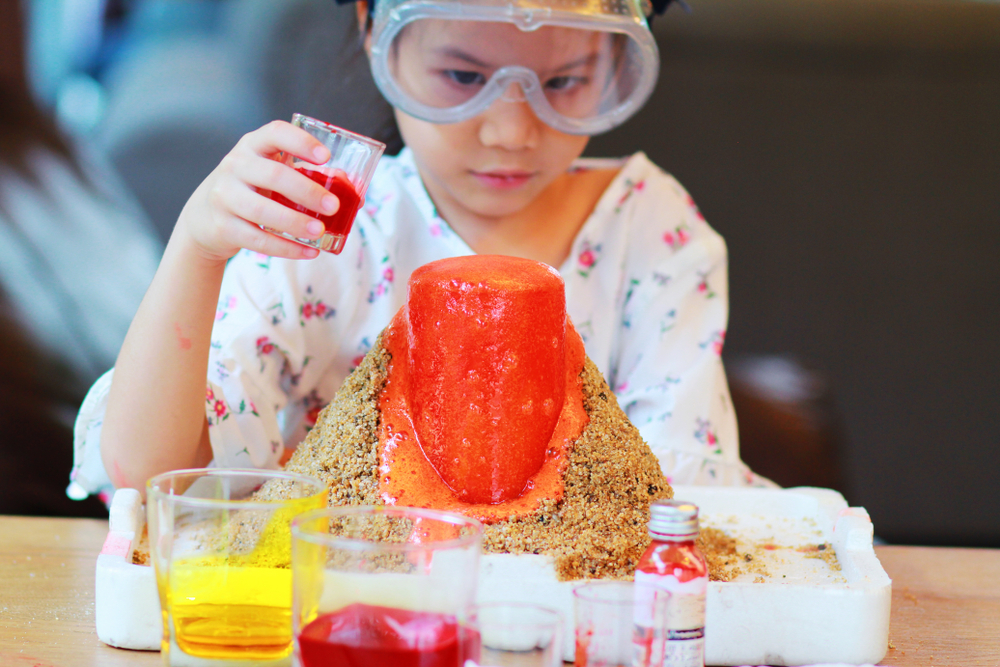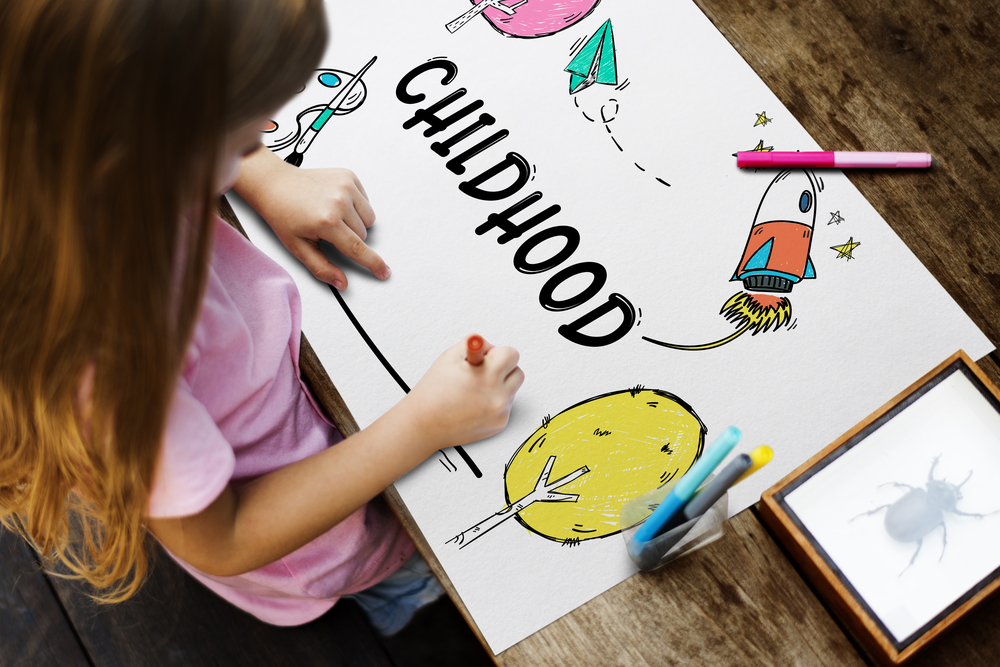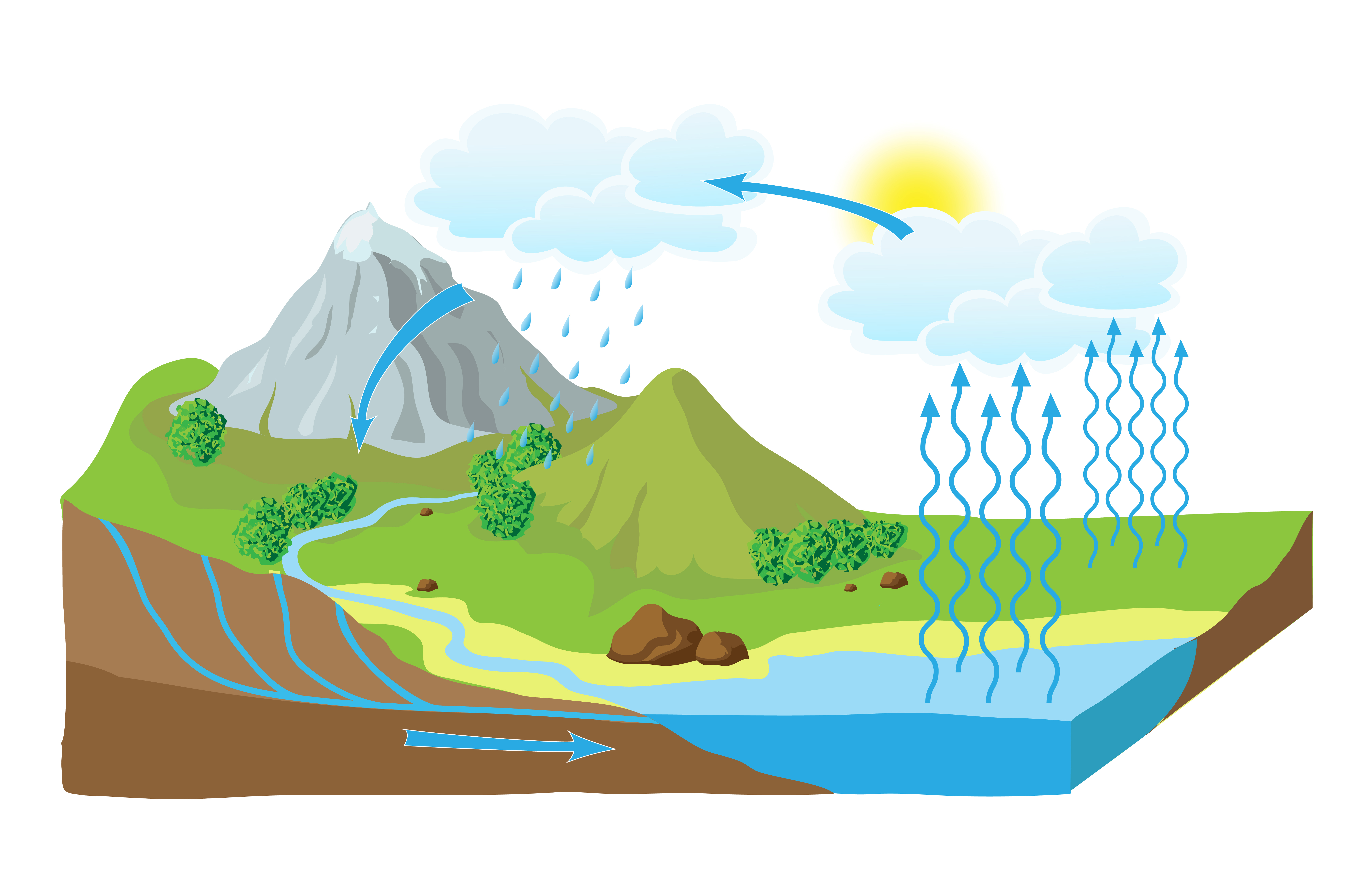Moon facts comprehension Worksheets for Kids
1 filtered results
-
From - To


Facts About the Moon Worksheet
Question/Answer
How to test a Grade 1 student’s Moon facts comprehension skills?
To test a Grade 1 student's Moon facts comprehension skills, use simple, age-appropriate questions in a quiz or oral format. Incorporate visuals, like pictures or models, and ask about basic Moon facts such as its appearance, phases, and relationship with Earth. Include true/false, multiple-choice questions, and straightforward short-answer queries tailored to their learning level.
How to train the Moon facts comprehension skill in Grade 1 students learning about Space?
To train Moon facts comprehension in Grade 1 students, use interactive and visual methods such as storytelling with colorful illustrations, engaging videos about the Moon, and simple, hands-on activities like creating moon phase calendars or models with playdough. Incorporate question-and-answer sessions to reinforce learning and ensure students understand the material in a fun and engaging manner.
What are some effective activities to train students’ Moon facts comprehension skill when teaching them about Space?
To enhance students' comprehension of Moon facts, employ interactive activities such as creating Moon phase calendars, building 3D Moon models highlighting its craters and terrain, and simulating lunar eclipses. Incorporate quiz games focusing on Moon trivia. Use virtual reality (VR) experiences for immersive lunar explorations and storytelling sessions that narrate the Moon's role in various cultures and scientific discoveries.
 Assign to the classroom
Assign to the classroom











